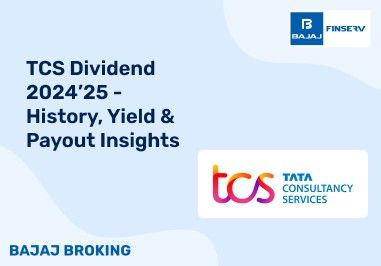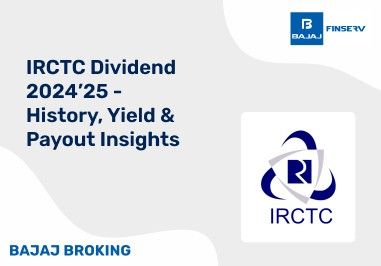BAJAJ BROKING
Tankup Engineers IPO is Open!
Open a Free Demat Account
Trade Now, Pay Later with up to 4x
Track Market Movers Instantly
IPO Investing Strategies: How to Evaluate and Choose the Right IPOs in India
The recent trend in IPO investing has caught on to Indian investors and now, IPO investment is one of the most sought-after investment channels. Although many companies that launch IPOs see gains after they are listed, several have different fortunes. Yet, India is buzzing with IPO launches month in and month out.
Investors in India think that IPOs always offer promising returns. However, you should consider that an IPO investment is essentially a stock investment, and returns, while prospects may be good for fundamentally sound companies, are never guaranteed. To help you determine which IPOs you should invest in, you should adopt certain strategies. Before you get to that, it is important to have some clarity about IPOs.
What is an IPO?
When a private company wishes to become a public company, it offers an IPO, an initial public offering. Being a private company, it is not listed on any stock exchange. When it introduces an IPO and offers its shares for the public to buy, it gets listed on a stock exchange and becomes a listed or public company. Once a company is listed on any stock exchange, anyone can buy the shares of the company and sell the shares of the company. If you want to invest in an IPO, India has a lot to offer in terms of new companies launching IPOs every year. Nonetheless, before you consider an IPO, there are some strategies and tips that will help you to make your decision more informed. These are worth considering as you do not invest in an IPO every day and you want your decision to reap returns.
Strategies to Choose the Right IPO
There are several strategies to invest in the right IPO and if you follow these, you can make some educated decisions:
Conduct Adequate Research
When you invest in any IPO, you are investing in the stock of a private company. Since the company is private, there are no disclosure regulations that mandate information generation to the public. These companies can easily hide any sensitive data and information, and what is available to the public may not be the “full picture” of the company. The company has to submit a Red Herring Prospectus (registered by the Securities and Exchange Board of India - SEBI) when an IPO is launched, but this is written by the company itself and may not contain full disclosure of company details. Hence, you must do your own in-depth research on the company and find out what you can. You can compare a company that is offering an IPO with its competitors, make a general sector analysis of the company, and find out about growth prospects.
Evaluate the Red Herring Prospectus Thoroughly
The Red Herring Prospectus that is released by any company must be read from corner to corner. The document is available on the website of the company, the website of the BSE or NSE, the SEBI portal, and in the media (newspapers and online news media). The Red Herring Prospectus is a document that outlines the company's details like its background, information on promoters, the reasons for the IPO, any risks, and key information about how the company will use the raised capital.
Know About Where Your Money is Going
Among IPO investing strategies, since you are investing your hard-earned money in an IPO, you should know where your funds are allocated. You will know this by reading the company’s prospectus. It is important to find out whether funds are being raised to settle liabilities or for the purpose of expansion and growth.
Delve into the Management
The management of a company is one of the keys to the company’s success. A company with a responsible and reliable management team can go through a crisis and come out strong. The quality of the management of any company distinguishes a sound company from a weak one. If the management is strong and is sticking to the company (and not exiting it with the IPO), then you know that growth prospects for the company may be robust.
Invest in an IPO Backed by a Robust Underwriter
Investment banks and brokers serve as underwriters of IPOs. Typically, prominent brokers and underwriters will back an IPO that it deems strong. Although there is no hard and fast rule to this, you can consider an IPO that is supported by a reputed broker or underwriter.
Grasp the Lock-in Period
One of the things to consider in knowing how to evaluate an IPO is to understand the lock-in period. Typically, IPOs come with a mandated period during which retail investors are not permitted to sell the shares allotted to them via an IPO. The company’s brokers and underwriters hold an amount of the company’s stock. You can get an indication of the company’s future strength by observing the behaviour of brokers and underwriters after the lock-in period. If they start selling stock after the lock-in, then it possibly indicates that they do not believe in the company’s prospects. On the other hand, if they hold the stock, they may believe the company has a bright future.
Final Lines
One of the reasons that a company releases an IPO is to raise capital for expansion and growth. This is a good sign for a company’s prospects and possibly tells you that a company is going in the right direction. However, not all companies launch IPOs for such reasons and the key to finding an IPO that suits your investment requirements is to do diligent research. IPO investment is promising if you invest in an evolving and promising business and are part of its future success.
Disclaimer: Investments in the securities market are subject to market risk, read all related documents carefully before investing. This content is for educational purposes only.
Share this article:
Read More Blogs
Disclaimer :
The information on this website is provided on "AS IS" basis. Bajaj Broking (BFSL) does not warrant the accuracy of the information given herein, either expressly or impliedly, for any particular purpose and expressly disclaims any warranties of merchantability or suitability for any particular purpose. While BFSL strives to ensure accuracy, it does not guarantee the completeness, reliability, or timeliness of the information. Users are advised to independently verify details and stay updated with any changes.
The information provided on this website is for general informational purposes only and is subject to change without prior notice. BFSL shall not be responsible for any consequences arising from reliance on the information provided herein and shall not be held responsible for all or any actions that may subsequently result in any loss, damage and or liability. Interest rates, fees, and charges etc., are revised from time to time, for the latest details please refer to our Pricing page.
Neither the information, nor any opinion contained in this website constitutes a solicitation or offer by BFSL or its affiliates to buy or sell any securities, futures, options or other financial instruments or provide any investment advice or service.
BFSL is acting as distributor for non-broking products/ services such as IPO, Mutual Fund, Insurance, PMS, and NPS. These are not Exchange Traded Products. For more details on risk factors, terms and conditions please read the sales brochure carefully before investing.
Investments in the securities market are subject to market risk, read all related documents carefully before investing. This content is for educational purposes only. Securities quoted are exemplary and not recommendatory.
For more disclaimer, check here : https://www.bajajbroking.in/disclaimer
Our Secure Trading Platforms
Level up your stock market experience: Download the Bajaj Broking App for effortless investing and trading













